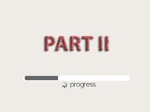
As I noted in the first part of this article (see The Department of Justice vs. eBooks I), the settlement proposed by the DOJ raises a lot of issues but doesn’t attack the central premise that agency pricing is okay.
I mentioned in part I that publishers could raise the list/wholesale prices of not-yet-published ebooks. But there is another option that could prove to be even more effective: Publishers are not obligated to give ebooksellers a 50% or higher discount as the wholesale price. Publishers could limit the wholesale discount to 30%, which would reflect the current 70-30 split that comes from agency pricing.
And there is nothing preventing publishers from limiting the format that an ebook can be sold in.
The point is, publishers do not have to think of themselves as helpless. I expect publishers will look at the situation as if they are helpless. They aren’t, but they need to be creative, something they are not known for. As the current debacle demonstrates, publishers are being led, they are not leading.
Let us not forget that the settlement proposed by the DOJ effectively separates book sales into two distinct markets: pbooks and ebooks. This could be important because one of the reasons the publishers gave for agency pricing is that they want to keep the brick and mortar stores alive. (It is worth noting that recent data show that even with the growth of ebooks, pbooks sales still account for 80% of all book sales.)
Well, the b&m stores rely on pbook sales, not ebook sales. Even Barnes & Noble relies on pbook sales. The only major bookseller of pbooks that doesn’t have b&m storefronts is Amazon. If publishers want to help ensure that the b&m stores continue to be competitors to Amazon, the simple way to do so is to not only insist that every bookseller get the same wholesale discount (there is no law that requires volume discounting) but then to supplement the b&m stores with higher co-op payments for displays, which would enable them to have additional funds for discounting to compete pricewise with Amazon.
The law requires that similar parties be treated similarly. So if Amazon wanted co-op money, it would have to open b&m stores. In other words, publishers could help level the playing field without straying from the requirements of the DOJ settlement.
It has been stated on numerous blogs and forums that the key to fighting Amazon is to do away with DRM. Without DRM, people would navigate to the ebookseller with the best pricing and service. I do not think that is true in the absence of devices that can handle different formats. Most Kindle owners will continue to shop at Amazon because Kindles can’t handle ePub in the absence of conversion and side loading. Similarly, Nooks can’t handle Amazon’s proprietary format without conversion and side loading. The question isn’t whether converting and side loading are hard to do — they aren’t — but whether most ebookers would do so to save a dollar or two. I think not.
What Kindlers and Nookers always cite in defense of buying from Amazon or B&N, respectively, is the ease of buying and then seeing their purchase appear on their device effortlessly. Right now they could buy a lot of the indie books that they buy at Smashwords in the DRM-free format of their choice. But they don’t because then they would have to side load the ebooks; they aren’t automatically loaded onto their device. Why would habits change?
Ultimately, the real keys to ensuring competition remains are a single, uniform format that is device agnostic (and if DRM must be, then the DRM also be uniform) and agency pricing.
I can hear the uproar as I write about agency pricing, but consider that many of the electronic items we buy are either agency priced or have the same effect through resale price maintenance agreements. Every ad I see for an Apple iPad gives the same price. Every ad I see for a Kindle Touch lists the same price. Yet no one complains that there is no price competition for these items (where is the DOJ’s proconsumer department in these cases?); the complaints are all directed at ebooks.
Of course, the answer is that Kindles don’t compete with Kindles, they compete with Nooks and each vendor independently decided to set the prices. But it is the blind person who fails to see that there is really no difference in effect for the consumer and the purpose of the antitrust laws, ultimately, is to protect competition for the benefit of consumers. Whereas the DOJ recognizes that the Kindle and the Nook are not the same, it insists that the Stephen King and the Dean Koontz novels are the same, at least in book form.
And if the DOJ were really focusing on the effect on the consumer, it would take a look at the various formats and DRM schemes that lock most consumers into a particular eco system. How much more anticompetitive can one be than to capture an audience and make it difficult for them to stray elsewhere?
Here is another question: Where are the authors in this dogfight? The Author’s Guild has come out against the DOJ settlement, but where are the indie authors? Based on comments I read elsewhere, most indie authors are pleased by the settlement because it will make Amazon even stronger and the majority of their sales are at Amazon.
In the short-term view, the stronger Amazon is, the better it is for the indie author. But is that true for the long-term? I can only speculate, but based on Amazon’s attempting to squeeze publishers for more money, I think it is fair to expect that eventually it will turn to squeezing indie authors. The more dependant an indie author is on Amazon, the less the indie author can refuse whatever terms Amazon wishes to impose. And it must be remembered that Amazon owes its obligations to itself and its shareholders, not to its suppliers. Amazon is the Walmart of ebooks.
There is also one other potential negative effect to the settlement. If Amazon succeeds in establishing the $9.99 price point, indie authors who have not yet found a large audience for their books will be squeezed into even lower pricing than currently. More of their ebooks will be priced at 99¢ and free because the reading public will not see them as being worth more when one can by the well-established and well-known author for $9.99 or less.
How this will all turn out is of great interest to me. I am pleased that Macmillan and Penguin have the moxie to fight the DOJ settlement, as I do not think the settlement is anyone’s best interest over the long-term. It may be of benefit over the short-term, but somewhere along the continuum, in the not-so-distant future, publishers, authors, and consumers will face a different reality.
What do you think?
(Via An American Editor.)
































